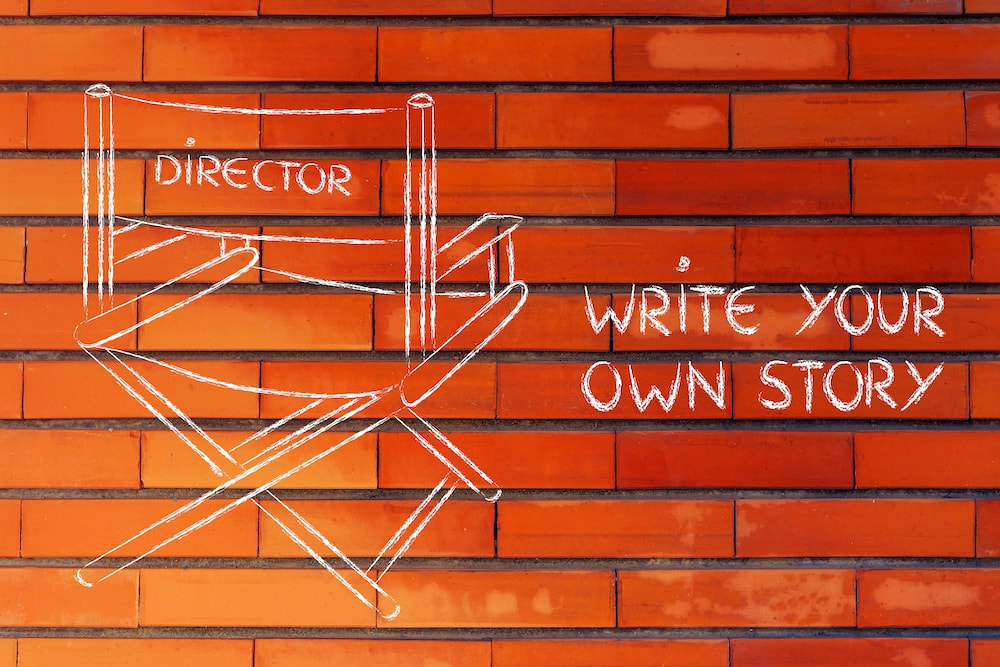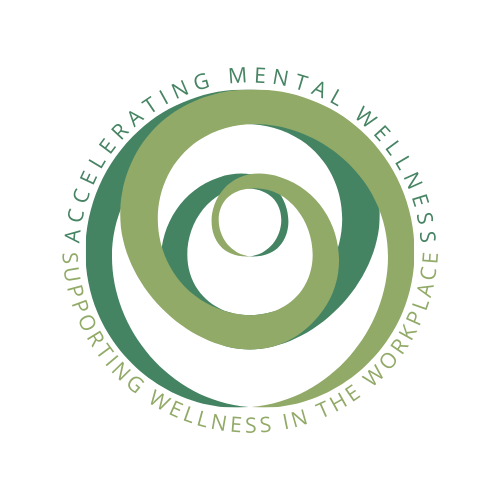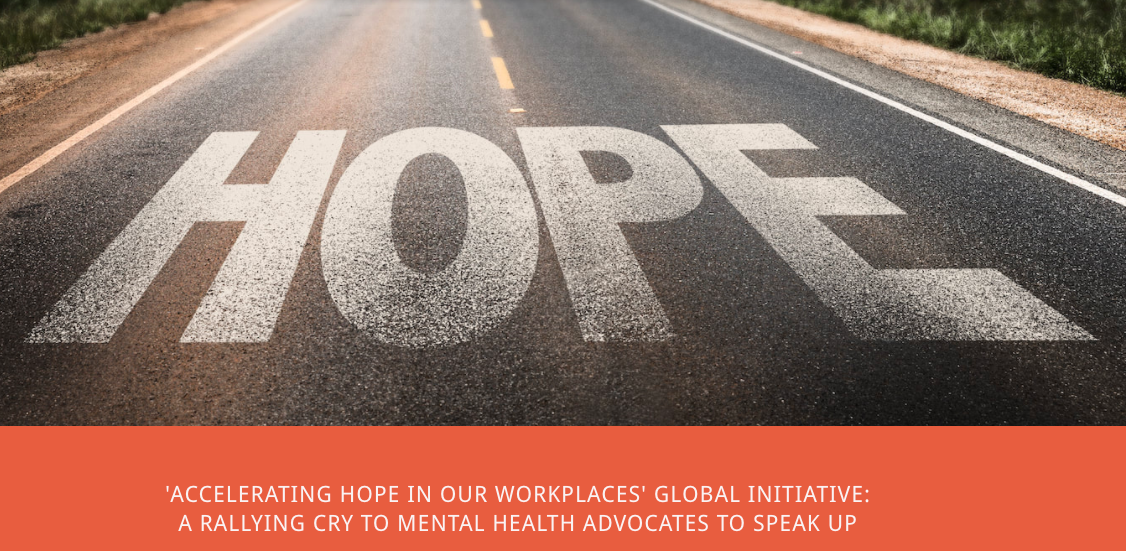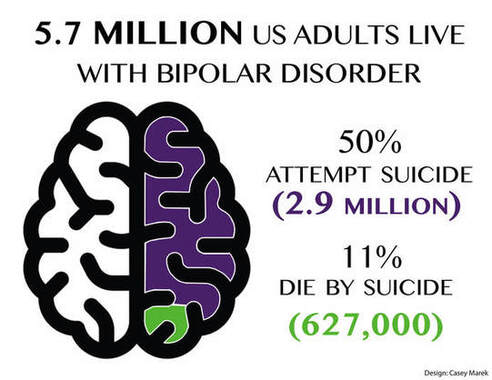|
12/15/2021 Challenges Those with Bipolar Diagnosis Confront in Workplaces: Don't Let Anyone Tell You This Is Not the Right Job for YouRead Nowperhaps this isn't the right job for youI have been told that, “perhaps this isn't the right job for you.” Don't let anyone tell you that. And if they do, do not believe them.
I work well. I am a good employee. Let me give you a small list of jobs that I have done that I have had panic attacks during: waitress, delivery driver, warehouse, janitor, social worker, zookeeper, ride operator, cleaner, canvassing, lab tech, cafeteria worker, retail, student, and mother. That is a wide variety of jobs. If I believed that I could not work somewhere because I was going to have a panic attack, then I would not be working. I work anyway. just because my panic attacks my make some uncomfortable is no reason for me to hide in my house and not work.I have bipolar disorder and it affects all parts of my life. That is something that I am constantly trying to manage. Just because that may make someone else uncomfortable, it is not a reason for me to hide in my house all the time. Some people cannot work and there is no shame in that. I cannot go to any other grocery store than my one grocery store. There is no shame in that. We all have our difficulties and if yours is that you cannot work, I respect that. But, perhaps, maybe you can go food shopping, but you occasionally have a hard time. Should you have to order your food and have it delivered? Of course not. if i had a visible illness, would you tell me not to work? of course not.If I was blind would you tell me I cannot work? Of course not. Why is it okay to tell someone with a mental illness that they cannot do something? I have difficulties, it is true, and sometimes I need a little help. I am not asking for special treatment. I am simply asking to play on the same level field. addendum: why we're launched a global grassroots campaign to create stigma-free workplaces built on a foundation of empathy - by the people for the people - to ensure we all feel worthyRaine not only deserves the same level field, she like anyone else with a serious brain disorder or, anyone else who is in need of mental health support (clinical diagnosis or not), deserves empathy, grace, caring and kindness at the workplace. In too many workplaces however, the field is far from level. We also all deserve to work in stigma-free environments that enable us to flourish and do our best work for our employers and for ourselves so we may feel of the utmost value. So we feel we belong. So we feel worthy. Not a total lack of empathy and caring friends. Because we as human beings always deserve that. Always. Today, our workplaces, more often than not, are not safe places. They are not empathetic, kind or caring. And they are chock-a-block full of stigma. Case in point, the Great Resignation where droves are leaving as they don't feel they are getting the deserved mental health support. Whilst it's easy to build a business case for why companies should bring in proper mental health programs and supports, still far too many have failed to do so. But here, we are presenting the human case (or cost). In light of far too many human cases brought forth by not only mental health advocates but ordinary people trying to survive, we have launched an Accelerating Mental Wellness Campaign asking workplaces to take a pledge to meet our criteria for stigma free environments. We are paying attention and watching on behalf of simply too many who are being treated with a total lack of empathy, grace, caring and kindness. And, on behalf of some who have attempted to take their own lives as a result; and on perhaps behalf of some who have died by suicide. We simply will never know how many as their precious souls are no longer here. For more on our global initiative to put an end to workplaces discriminating against those who are simply suffering and in need of empathy not a lack of support or, in the worst case, who are fired for bravely coming forth with their struggles or for not performing due to depression, please see our Advocacy page. And join us our movement to ensure all people feel worthy regardless of need for mental health support by signing our change.org petition: change.org/weareallworthy. We do hope friends that you will join us, stand up and speak out. This simply has to stop. authorAs part of our social change campaign to co-create stigma-free workplaces built on a foundation of empathy with needed mental health programs and supports, we invite people to share their stories with us to help build the human case. We believe we can humanize stigma with storytelling and educate by sharing what is it feels like to walk through our world with a serious brain disorder.
0 Comments
12/8/2021 fighting through Hell as a child to emerge an empowered woman: the grit and resilience of a true mental health superhero, Meagan CopelinRead Now[TRIGGER WARNING: SH, SA, R*PE, ED] i have to fight through hell to become the EMPOWERED WOMAN i am today.
BEING BORN WITH GRIT, DETERMINATION AND FIGHT DOESN'T MATTER WHEN YOU'RE BORN TO TEENAGE DRUG ADDICTSAs a young girl, growing up in the city of New Orleans, I was always determined to be the very best and to never give up despite my obstacles. In fact, my aunts and uncles nicknamed me “Maybe Tomorrow” as they saw determination and grit from the moment I was born. My great-grandmother, Anna Copelin, who we called Mother Anna, holds a special place in my heart. Mother Anna passed away when I was 3 years of age, and although I do not remember much about her, I do know she still guides me and watches over me daily. She has truly been my guardian angel. My mom and dad were teenagers when I was born. I was primarily raised the first 3 years of my life by Mother Anna and my great grand-father, Daniel Copelin (Granddaddy Copelin), not because they wanted to but because they needed to. Even born as a premature baby, I had so much fight in me. I was a very small baby, with a big forehead (LOL). My great grandparents were full of love. The greatest memories I shared with Granddaddy Copelin was us sitting at the kitchen table eating stale ginger snaps and cold hot dog links. For some reason, my granddaddy loved giving us grandkids stale snacks. I still smile thinking about how my granddaddy enjoyed a snack that I found very unpleasant, but I still enjoyed spending time with my love. He was the first man that I ever loved, and he showed me love as I didn’t grow up with my dad in my life, so my granddaddy and certain uncles were there for me. My birth mom was in and out of my life and was extremely unstable. I remember when I was around 6 years old, she was involved in an unstable relationship with a man, and he got so mad at her that he hit her in the head with a car jack. She needed over 200 stitches. That was very scary to watch. I really think I started to experience mental health issues around that time or maybe earlier, starting around the age of 5. My dad disappeared when I was around 7 years old. I didn’t remember him and never cared to find him. I did start asking about him later but remembered that the other men in my life made sure I was good. (I am happy. I never had daddy issues thank goodness.) My mom and dad were both crack heads. I mean call it like you see it. They abused drugs heavily. I saw my mom take drugs, snort crack, and sell her body. I was young seeing all of this. WTF. No child should ever have to live through this hell.My mental health was spiraling out of control. I was starting to act out and cut myself. I was a child. Why was I seeing this shit? At the time, I never realized this was a sickness she possessed and for years I did not like her. I hated her. I didn’t want a relationship with her. I even told people she had died. I was angry so anything I said at that time I meant it. She was fucking up my mental health. I was depressed, had PTSD, was wetting the damn bed, experiencing an eating disorder, etc. I was a child. No child should ever have to experience this, no matter what. I WAS MAD at that time. My mom had lots of men in her life, and I mean LOTS of men. She would meet a man on Wednesday, and we would be living with him on Friday. I watched my mom experience lots of pain from men, from being abused to assaulted. She was on drugs and gone for days. There were times I didn’t see my mom for days, even weeks. This was traumatizing for myself as well as my brother and sister. My mental health was spiraling out of control. I was cutting myself and biting my nails down to the skin. I was going through hell. getting held down, raped and pimped out by your mother when eight seriously fucks with your mental healthAt the age of 8 years old, I was raped multiple times by my mom’s boyfriend. I think he was boyfriend number 500 of that year. I loved school and would go right to school after being raped by that ugly old ass monster. He smelled like grease and molded bread. He was a PIMP and would have sex with prostitutes before and after he raped me. My mom was aware of this but when drugs take over your life, that is typically the focus and not anything else around you. He told me not to tell anyone, and he even told me that he would tell her and that she wouldn’t do anything. The nerve. And he was right: I told her and nothing was done. These two were really messing with my PTSD. Severe depression was kicking in. Crack and cocaine are truly a hell of a drug. at age of 12, diagnosed with clinical depression, ptsd, anxiety, eating disorder, ocd, and behavioral and emotional disorder. thanks mom.School was my safe haven and even though I was bullied daily, I still went with dirty ass clothes and cuts on my body. I should have been playing with barbie dolls and eating dinner at the table with a normal family, but I was facing severe trauma at 8 and 9 years old. I eventually moved in with an abusive aunt, who would beat me with a broom and make me sleep in my own urine as I was still wetting the bed from severe trauma. I was suffering and going downhill. After two years or so, I had an opportunity to move with another aunt who changed my life. That aunt saw that I needed help and sent me to see a licensed psychiatrist. At the age of 12, I was diagnosed with clinical depression, PTSD, anxiety, an eating disorder, a behavioral and emotional disorder, and OCD. I was provided a prescription for mental health medication as well. learning to forgive, not for her, but for me.For years, I did not like my mom and didn’t see her again until I was 20 years old. I had to really learn forgiveness and it was hard. I sought counseling and joined a church to help me learn how to forgive my mom. I finally forgave her about 7 years ago. I am now 40. I realized that forgiving her was not about her but about me. And about freeing me. To move on and succeed in life, I had to learn the power of forgiveness. That was truly a process for me. I had to be open and understanding. I had to place myself in her shoes in order to understand her struggles. I didn’t have to have a relationship with her to forgive her. It felt good to rid that baggage that was holding me back for years. The act that hurt me will always be with me as I have that right, but forgiveness has lessened its grip on me. Forgiveness has allowed me to led with understanding in my personal life, as well as show empathy and compassion for my parents, as well as others around me. How can you improve your child's mental health? your child deserves it.One of the best things you can do to keep your child mentally healthy is to take care of your own mental health. As a parent, it is important that you protect your child and never allow them to be placed in situations that may harm them and scar them for life. A child needs to be a child and do things that children do, such as playing with dolls and car toys. Children are innocent.
Parents should also have a basic understanding and answers to questions such as what mental illnesses are, who can get them, what causes them if that is known, how diagnoses are made, and what treatments are available. Do your homework. Your child deserves it. i was put on this earth for a reason. speaking up about stigma is my gift. It is my calling.When I share my story with others, I always say that I am happy I have been through the things I have been through. My reason is because I believe GOD knew I could handle this. I am not my parents and never inherited any of their traits or habits. I was placed on this earth to help young girls and women all over the world share their story. Speaking up regarding the stigma of mental health is my gift. I was meant to do this. If you're thinking about hurting yourself, are worried about a friend or loved one, or would like emotional support, the Lifeline network is available 24/7 at 1-800-273-TALK (8255). AuthorDr. Meagan T. Copelin is the Supporting US Chair of Accelerating Mental Wellness, a social-justice campaign to co-create stigma free workplaces built on a foundation of empathy with needed mental health supports and programs. 11/24/2021 WE aRE here to build a world where all children flourish but first we need STIGMA-FREE workplaces: FOUR simple ways you can helpRead Nowwhy i am doing this accelerating mental wellness campaign FOR WORKPLACES. what is your why?Please allow me to introduce my why, the inspiration that drives me to work so hard on this campaign: Sara. We have hashtags for one another, #saraslight and #kerryshope. Accelerating Social Good collaborates with causes to build a world where the mental healthcare system doesn't let anyone down. A world where all our children can flourish. To enable all lights to shine, we simply must have work settings that support and empower people, environments wherein my precious Sara's light is allowed to illuminate as bright as possible. It is for Sara, who is now 24, and her beautiful friends, that I dedicate much of my time to ensure this cause-advocacy campaign exceeds our expectations. What about you? Is creating stigma-free workplaces built on a foundation of empathy, caring, compassion important to you too? Should workplaces be providing mental health programs and supports? What is your why? Please consider joining us. Stand with others and share your selfie, and/or share your story. We are simply stronger as advocates and concerned citizens when we stand together. If we are here to affect social change, this is how we can do it. Together. help write stigma-free story with an empathy plot. a story of hope. let's co-create workplaces we all can flourish.If mental health advocates collaborate, we can interweave a more inclusive story both persuasive enough to change society and powerful enough to shine a light on what the future should look like. A future of no stigma. A future with where we lose fewer precious souls far too soon. A future of mental wellness. A future of hope. A future where we all can flourish. Let's work together to create stigma-free workplaces, rebuilt on a foundation of empathy and caring, by sharing our lived experiences. A key to ending mental health stigma (read systemic discrimination) is to humanize it with storytelling.
BUT WE CAN'T DO THIS ALONE. WE NEED YOUR HELP.This is a rallying cry to advocates and concerned citizens to come together. To share our selfies and our stories in a collaborative and coordinated campaign to accelerate social change on behalf of those who are suffering in silence and shame. With must step up and speak out, a calling more salient in light of the Great Resignation. Whilst it is easy to build a business case for workplaces to integrate mental health access and programming as a benefit (and we intend to do so), let's also come together to do the hard work. Let's build a human case for rebuilding our workplaces on a foundation of empathy and caring. If you are a mental health advocate, please consider joining us and raising your voice. Let's all stand up and be heard. And together, be so loud that eventually they must not only listen but TAKE A PLEDGE to either acknowledge the importance of this initiative or take concrete steps to create a stigma-free workplace with appropriate mental health programming and supports for employees. More on this to come in 2022. FOUR ways you can help
AuthorKerry Martin, Sara's Number 1 Fan, CEO & Founder, Accelerating Social Good; US Lead Chair, Accelerating Mental Wellness Social Change Campaign. 11/23/2021 Mental health stigma could have been difference between Me living Or being yet another mental illness statistic: workplace terminates me and takes away my bipolar lifeline, my health insuranceRead Nowworkplace terminates me and takes away one of my lifelines, my health insurance
Ultimately, I was fortunate. With the support of my friends and family, and drawing upon my own hard work and determination, I was able to improve and become the person I am today. But mental health stigma was another barrier to wellness that could have easily been the difference between me living this life or becoming another mental illness statistic. Don't those of us with bipolar disorder already have to fight hard enough to stay alive corporate america?Next year, over 25,000 Americans will die by suicide. Half of them will have bipolar disorder. How many can be saved is up to us. Up to Corporate America. Up to those workplaces that continue to allow stigma to fester. That continue to fire those with this serious brain disorders because we are too depressed to work. To string two coherent thoughts together. Or, we are too manic and we upset your work-life culture or you work us too hard and force us into manic states. Or, because we are simply misunderstood as people. Yes, we are just like you. People. We, as a society, can come together and eradicate the stigma which is quite simply killing us and putting us in early graves. For far too long, the bipolar community has been ignored. Just but one example, in a post explaining why, A Call for Spending Equality Given Devastating Impact of this Killer Disease by Kerry Martin, our Chief Purpose Officer and Mental Health Activist. It is currently estimated that 4 to 6% of the population has some form of bipolar disorder, with the disease affecting 5.7 million adults, 2.6% of population age 18 and older. According to the National Institute of Mental Health, 83% of these cases are considered severe, with 51% not receiving healthcare treatment. The risk of suicide among those living with bipolar disorder is 20 to 30 times greater than the general population and significantly higher than other depressive disorders. Over their lifetime, 80% battle suicidal ideation and approximately 28% will attempt suicide within five years. Fifty percent of those with bipolar will attempt suicide at some point in their lives, with up to 11% dying by suicide. Some studies indicate that the suicide rate is closer to 20%. addendum: WHY ACCELERATING SOCIAL GOOD LAUNCHED, IN COLLABORATION WITH MENTAL HEALTH ADVOCATES & CONCERNED CITIZENS, A CAMPAIGN TO CREATE STIGMA-FREE WORKPLACESGabe didn't deserve what happened to him but we are so happy here with us now as he is an outstanding mental health advocate and a treasured member of our mental health community. However, he like anyone else with a serious brain disorder or, anyone else who is in need of mental health support (clinical diagnosis or not), deserves empathy, grace, caring and kindness at the workplace. In too many workplaces however, that is simply not the reality. We also all deserve to work in stigma-free environments that enable us to flourish and do our best work for our employers and for ourselves so we may feel of the utmost value. So we feel we belong. So we feel worthy. Not a total lack of empathy and caring friends. Because we as human beings always deserve that. Always. Today, our workplaces, more often than not, are not safe places. They are not empathetic, kind or caring. And they are chock-a-block full of stigma. Case in point, the Great Resignation where droves are leaving as they don't feel they are getting the deserved mental health support. Whilst it's easy to build a business case for why companies should bring in proper mental health programs and supports, still far too many have failed to do so.
AuthorsGabe Howard, Bipolar Speaker & Writer, Host: Inside Mental Health: A Psych Central Podcast, Author, Mental Illness is an Asshole & Kerry Martin, Chief Purpose Officer, Accelerating Social Good & Mental Health Activist Flourishing with a Bipolar Diagnosis 11/22/2021 Stigma of Mental Illness in Small Town USA Results in Firing Due to Unfounded Community Fabrications and FearsRead NowNote to our readers: This blog post was originally posted by Hope Xchange, a nonprofit dedicated to saving and improving lives in the bipolar community founded and run by Kerry Martin, our Chief Purpose Officer. We are reposting to raise awareness about mental health stigma which sadly has not changed or been eradicated some five years later. The post by authored by Tosha Marks, who was for some time in charge of Hope for Bipolars, a peer-to-peer virtual support program; and, she was a mentor as well. the depression was back and hitting hard coreIt was cold out. That’s all I really remember. I had on a stocking cap and I was wearing a sweatshirt. This was my common attire for my then-position as a bus monitor for the school district I live in. The depression was back and it was hitting hard core. I had lost faith in my current psychiatrist and getting in to see a new one proved to be a challenge. I had an appointment, but it was a month away. I was going to see a doctor who was newly out of school, young, and hopefully wouldn’t, as I called it, “cookie cut” me when it came to medications. I had just found the webcam feature on my new mac, hit record, and “Ramblings of a Bipolar Mom” started to flow from my mouth. After I was done speaking I thought, I am going to use this for good. Maybe someone else needs to hear it. I posted it on Facebook without a second thought. I did a video about every other day, talking about having bipolar illness and how it made me feel and some of the things that it did to me. I got some positive and supportive feedback from friends: “Good for you Tosh, maybe this can help someone else,” one friend said. I felt good about the video blogs. the post i thought was helping but started it allI was very depressed, but I was getting into the doctor and hoped I would be OK soon. I remember getting one message that didn’t make any sense to me until later. It said, “I don’t care what people are saying, I have depression and I am behind you 100%.” It was from a neighbor. I live in a very small town, small enough that it is actually called a village. I just took that comment as a compliment, and it didn’t dawn on me to pay attention to the part that said “what people are saying”. I would, however, find out very soon. I was at the bus barn in between runs when my boss asked me to follow him into the offices of the administration building. My chest tightened and my heart sped up as I walked through the hallway leading to the HR manager's office. On the screen of his computer was my face. My blog was pulled up as if I was doing something deceitful on the job. The whole school district was in an uproar over my videos. Some of my children’s friends were on my Facebook page and some of their parents were as well. News of my illness traveled quickly among administrative staff, principals at the schools, and all the way up to the superintendent of the district. They were flooded with calls demanding my immediate dismissal. I sat there blank faced. I explained I was trying to help others who have bipolar, asking why there was a problem. They told me I yelled at the students. I said I have never yelled at the students, I talked loudly. There were 70 students on the bus. If I didn’t speak loudly, how would they hear the instructions? I was dumbfounded. I was advised strongly to take the videos down immediately and not do anymore. I was hurt, and ashamed, and worse than that, I worried about my boys and how would this affect them at school. Would the other kids make fun of them for having a crazy mom? the shaming had just begunWithout thinking I took the videos down and sank even deeper into depression; however, the shaming had just begun. Day after day I was told of phone call after phone call to the school and the administrative offices. The parents were relentless. The principal, with whom I previously had a good relationship since my sons were in preschool (now my oldest was in high school) asked me rudely, “Is it worth it for this stupid job?” When I tried to apologize to him for all the phone calls he was having to deal with, I told him yes it was since the school board paid my insurance. I was crushed that he hadn’t assured the parents I was fine to be around their children because he knew me personally and knew I would never harm them. the unimaginable happened
We stopped in town where the majority of the children and I got off the bus. Seventeen kids got off, starting with the youngest. I was the last one off the bus after the fifth graders exited. The snow had melted, the air was fresh and my children decided to walk the two blocks home instead of riding in the car home with me. I remembered that my oldest son had lost his key to our van in the snow a few weeks earlier, so I started looking for it along the side of my car. I noticed another van parked across from mine but didn’t see who was in it, just figuring it was another parent picking up their child at the bus stop. My twins called to me, asking what I was looking for. I called back, “The van key that Colton lost a few weeks ago”. After a few more moments, I gave up the search got in my car and drove home. The next day my boss asked me to come to his office. He had received a call from a man who said I had pushed his son, a kindergartner, off the bus and then went up to his son and wife sitting inside their van and started growling at them, trying to get into their van. This was a complete fabrication. I asked my boss, “Why do they want me gone so badly? I have done this job for four years without a problem. I don’t understand.” i had never dealt with bipolar stigma before that momentI had never dealt with the stigma of bipolar before that moment. Why would someone go out of their way to fabricate a complete lie to try and get me fired from a job that I had done for years with no complaints from anyone? I couldn’t understand how people, already knowing I was already depressed, would try to take something from me that could send me further into depression. I still don’t talk to many people in the town we live in. Fewer than 700 people live there and most know my diagnosis. They choose to think I am different because of having a mental illness.
appendum: WHY WE'RE LAUNCHING OUR GLOBAL ACCELERATING MENTAL WELLNESS INITIATIVE TO CREATE STIGMA-FREE WORKPLACESTosha like anyone else with a serious brain disorder or, anyone else who is in need of mental health support (clinical diagnosis or not), deserves empathy, grace, caring and kindness at the workplace.
We also all deserve to work in stigma-free environments that enable us to flourish and do our best work for our employers and for ourselves so we may feel of the utmost value. So we feel we belong. So we feel worthy. Not a total lack of empathy and caring friends. Because we as human beings always deserve that. Always. Today, our workplaces, more often than not, are not safe places. They are not empathetic, kind or caring. And they are chock-a-block full of stigma. Case in point, the Great Resignation where droves are leaving as they don't feel they are getting the deserved mental health support. Whilst it's easy to build a business case for why companies should bring in proper mental health programs and supports, still far too many have failed to do so. But here, we are presenting the human case (or cost). In light of far too many human cases brought forth by not only mental health advocates but ordinary people trying to survive, we have launched an Accelerating Mental Wellness Initiative that demands workplaces that to do not meet our criteria for stigma-free environments take immediate action to do so. We are paying attention and watching on behalf of simply too many who are being treated with a total lack of empathy, grace, caring and kindness. And, on behalf of some who have attempted to take their own lives as a result; and on perhaps behalf of some who have died by suicide. We simply will never know how many as their precious souls are no longer here. For more on our global initiative to put an end to workplaces discriminating against those who are simply suffering and in need of empathy not a lack of support or, in the worst case, who fired for bravely coming forth with their struggles or for not performing due to depression, please see our Accelerating Mental Wellness global workplace cause-advocacy initiative. We do hope friends that you will join us, stand up and speak out. This simply has to stop. 11/18/2021 IMPACT OF RELIGION AND STIGMA ON Getting TREATMENT FOR MENTAL ILLNESSES IN INDIA: MY PERSONAL BIPOLAR JOURNEY TO SEEK MEDIcAL and Family SUPPORT FOR MY PHYSICAL CONDITIONRead NowIF YOU HAVE A MENTAL ILLNESS, YOu're POSSESSED BY THE DEVIL. STIGMA IS RAMPANT STOPPING PEOPLE FROM REACHING OUT FOR HELP.India is a big diverse country with people from many different cultures and religions. Having a mental illness (or, what is really, a brain disorder) is still considered a taboo in many religions. Traditionally, people with mental illnesses are seen as being possessed by evil spirits. Some believe that these people must have done something bad in their past life so they are have been given this curse and will have to suffer their entire life. These beliefs are embedding in our culture, creating a barrier in getting treatment. Depression is not new to India and most see that as a weakness and expect a person to fix it themselves by meditation or yoga. When a person has a serious illness like bipolar disorder or schizophrenia, he/she/they have a hard time accepting the diagnosis and getting help. In India, even being a psychiatrist is stigmatized. They are considered crazy and inhumane people who give shock treatments. This traditional thinking has changed quite a lot but still we have psychiatrists in major cities only, with none in and remote areas. MY BIPOLAR JOURNEY to try and get help I needed from medical community and family and friends. Enter religion. Enter stigma.When I told my friends that I was taking psychiatric medications to treat my bipolar disorder, they told me that you don't need any medications and my psychiatrist is probably giving my the wrong medications that will make me more sick. When I was showing the first signs of mental illness, my parents asked a spiritual guru for advice. He informed them I was possessed by evil and they need to do prayers to get the evil energies out of me. Eventually, they did Maha Mritunjya path (prayers to eradicate evil) for two days and took huge sums of money. Nothing helped even one bit. The reluctance to getting proper help is such that if anyone says they are taking therapy, people regard them as weak and look down upon them. In educated and upper middle class families like mine, my parents still believe that mental illness is all in my head and a little walk or yoga could fix depression. I educated myself. I learnt more and more about illness by reading DSM4 and online blogs. Eventually, I decided to take treatment. That saved my life and made me a productive member of society. SO, WHAT DOES THE FUTURE LOOK LIKE IN MY COUNTRY? is there hope?There is light at the end of tunnel, albeit hidden. My country has come a long way but still needs more awareness around these topics. With COVID-19, people felt the importance of mental health as they were unequipped to deal with extreme situations like the loss of jobs, loss of loved ones etc., which pushed many people towards depression and anxiety. That situation paved the way for many to open up about their mental health. This was also the first time I saw the topic of mental health in the national news. In the past few years, the Indian government has passed many laws like giving quotas (reservations) for people with mental illness in getting government jobs. Marriages can no longer be annulled because of the mere presence of mental illness. Now, we can have insurance which covers consultations and admission charges. Hope is here. With more educated people and more corporate stress, mental illnesses are slowly being recognized as physical illnesses and this acceptance will, I hope, continue to improve in the coming future. AuthorHitesh Gupta, India Chair, Accelerating Mental Wellness, A Global Workplace Cause-Advocacy Initiative Sponsored by Accelerating Social Good |
Details
Archives
February 2023
Categories
All
|











 RSS Feed
RSS Feed